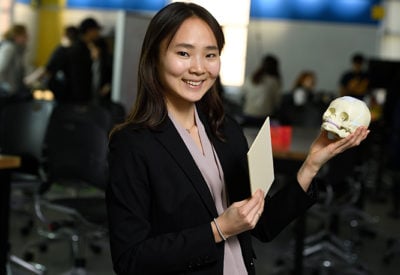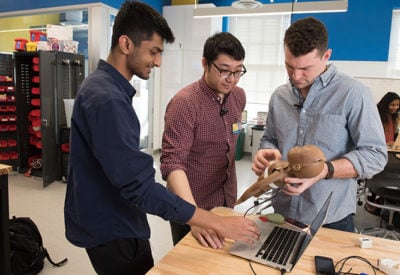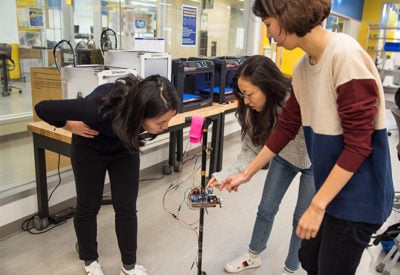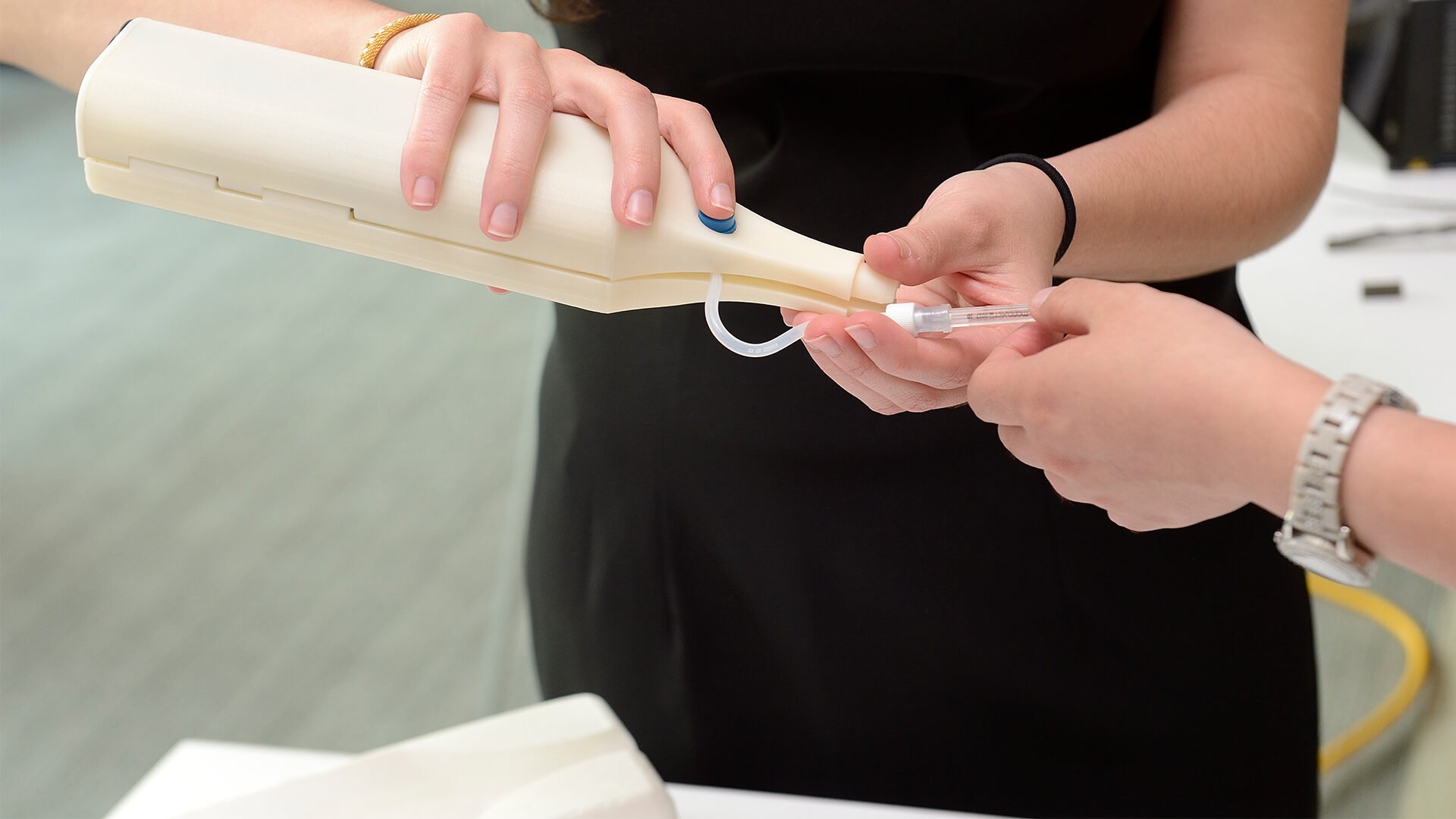The Johns Hopkins Department of Biomedical Engineering offers several opportunities for undergraduates and graduate students to continue engineering the future of medicine by applying design principles to important medical and research challenges through team-based projects. Starting with the first-of-its-kind longitudinal BME Undergraduate Design Team program more than 25 years ago, our design programs have grown to include more than 50 design teams and 300 students each year, all focused on real-world healthcare and engineering challenges. In addition to BME Undergraduate Design Team, we now offer a design-based master’s program and several project-based design courses for BME students of all levels. Together, these programs support student innovation on projects related to clinical care, global health, artificial intelligence and machine learning, precision care medicine, and more.

Undergraduate Design Team Program

MSE in Bioengineering Innovation & Design

